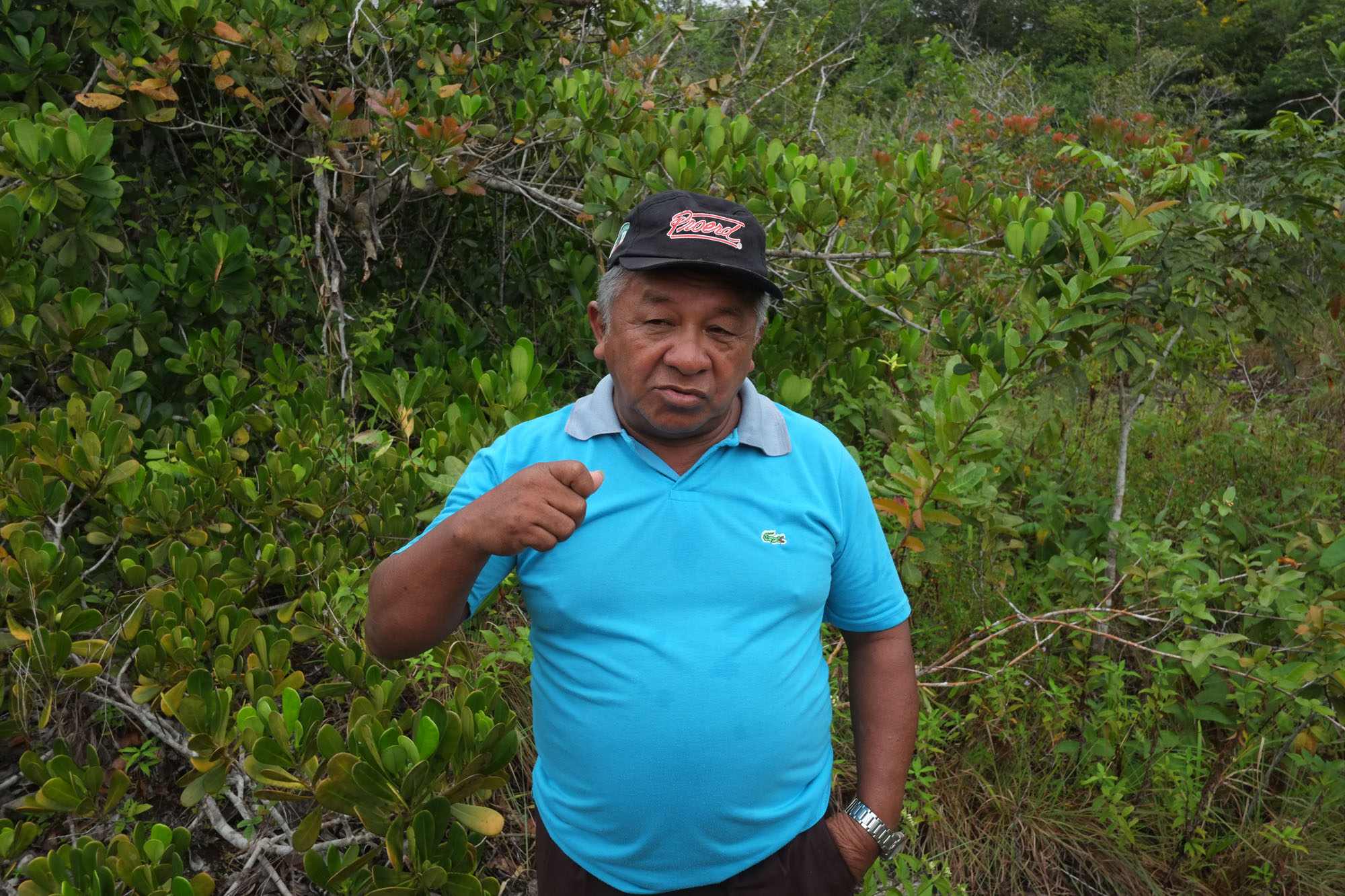
This story excerpt was translated from Portuguese. To read the original story in full, visit Repórter Brasil. You may also view the original story on the Rainforest Journalism Fund website here. Our website is available in English, Spanish, bahasa Indonesia, French, and Portuguese.
The life of Amado Menezes, indigenous leader of the Sateré-Mawé tribe in the Amazon, was marked by battles. His second-to-last battle was against the Indigenous health authorities that interrupted the support to the health barrier set up at the entrance of the village to protect the Indigenous people from COVID-19. Amado's last battle was against the virus itself: it lasted 23 days. He died in October 2020 at the age of 69. "We lost our greatest leader," lamented lawyer Tito Menezes when speaking of his uncle's death.
The order to withdraw support for the health barrier came from the Special Indigenous Sanitary District (Dsei) Parintins, the body responsible for the health of the villages and which should, in the midst of the pandemic, protect communities.
Repórter Brasil investigated the change of command, initiated by the Bolsonaro government, in the 34 existing Dseis in the country and the negative impacts that some of them have been causing on the health of native peoples.












